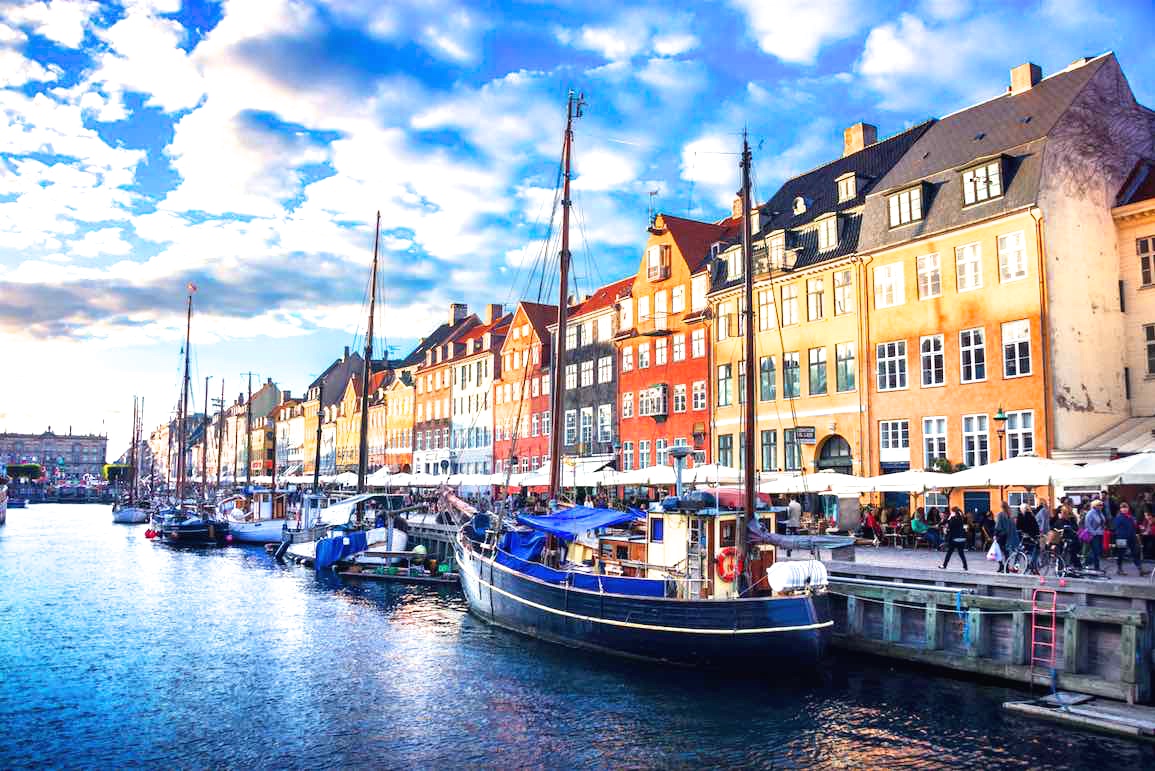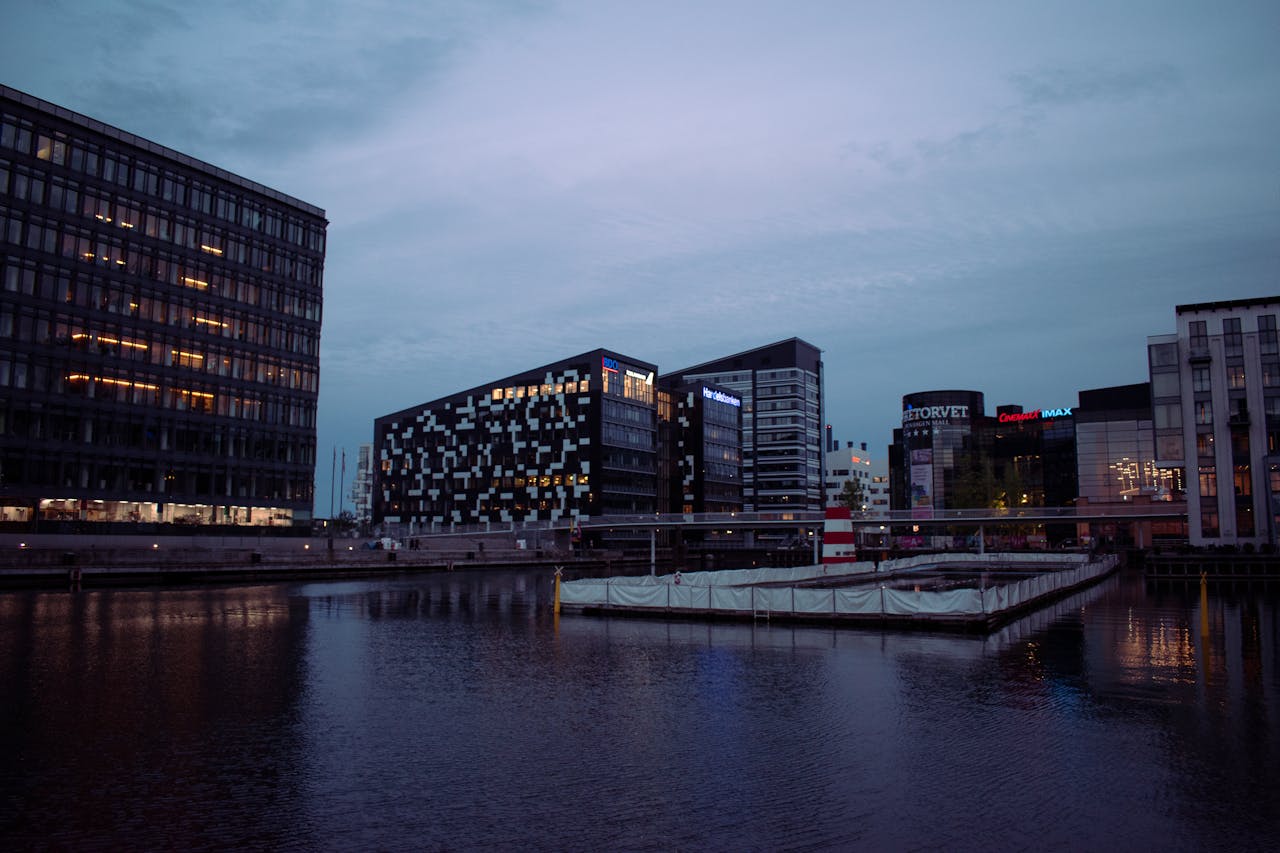Market Research in Denmark

Understanding market research in Denmark involves recognizing the cultural nuances, economic factors, and technological advancements that shape consumer preferences and market dynamics. By leveraging this knowledge, businesses can refine their product offerings, enhance customer experiences, and gain a competitive edge in the Danish market landscape.
What insights can market research in Denmark unveil for your business growth strategy? Market research in Denmark is the cornerstone of informed business decisions in one of Europe’s most vibrant economies, and understanding the unique landscape of Denmark’s market is key to success.
Overview
Denmark is an advanced economy in Northern Europe bordered by Germany and located underneath Norway and Sweden. The country consists of many islands, more than 400 in total. The capital is Copenhagen, which has over half a million inhabitants. The language, Danish, is closely related to the Norwegian and Swedish languages. A minority is German-speaking. Most people also speak English.
What Is Market Research in Denmark?
Market research in Denmark aims to understand consumer behavior, market trends, and competitive landscapes within the Danish market. This process involves various methodologies such as surveys, focus groups, interviews, and data analysis to extract valuable insights that drive strategic decision-making.
Why Do Businesses Need Market Research in Denmark?
Market research helps businesses gain insights into Danish consumers’ preferences, behaviors, and purchasing patterns. This understanding is crucial for developing products or services that resonate with the local market. By conducting thorough market research in Denmark, businesses can uncover untapped opportunities, niche markets, and emerging trends within Denmark. This information enables strategic planning and informed decision-making.
Furthermore, market research allows businesses to assess the competitive landscape in Denmark, understanding key competitors, their strengths, weaknesses, and market positioning. This knowledge helps in developing effective competitive strategies. Likewise, feedback from market research guides product development efforts, ensuring offerings meet local demand and comply with regulatory requirements specific to the Danish market.
In any case, market research in Denmark brings some other benefits, including:
- Competitive Intelligence: Market research enables businesses to gather competitive intelligence, understand competitor strategies, and position themselves effectively.
- Optimizing Marketing Strategies: Research insights help develop targeted and effective marketing strategies tailored to Danish consumers, improving campaign performance and ROI.
- Enhancing Product Development: Feedback from market research in Denmark guides product refinement and development processes to meet local market demands and preferences.
- Customer Insights: Market research provides deep insights into customer behavior, preferences, and needs, facilitating better customer engagement and satisfaction.
- Evaluating Market Entry Feasibility: Research helps assess the Danish market’s feasibility and viability, guiding market entry strategies and investment decisions.
- Tracking Market Trends: Continuous research allows businesses to stay updated with evolving market trends, enabling proactive adjustments to business strategies.
- Data-Driven Growth Strategies: Market research empowers businesses to implement data-driven growth strategies, optimizing resource allocation and operational efficiency.
When to Conduct Market Research in Denmark

Timing is crucial when it comes to conducting market research in Denmark. Here are key considerations for determining the optimal timing:
• Product Development: Conducting research during the product development stage helps gather feedback from Danish consumers, ensuring that your offerings align with local market needs and preferences.
• Campaign Development: For marketing campaigns targeting Danish consumers, conducting research beforehand helps craft compelling messaging, select appropriate channels, and optimize campaign performance.
• Competitor Analysis: Regular research updates on competitor strategies and market trends are crucial for staying competitive in the dynamic Danish market landscape.
• Seasonal Trends: Conducting research at specific times of the year to capture seasonal trends and fluctuations in consumer behavior, especially relevant for industries like tourism, retail, and hospitality.
Expected Results from SIS International’s Market Research in Denmark
At SIS, market research and consulting services are designed to deliver impactful results for businesses operating in Denmark. Here are the expected outcomes:
Boosted Revenue:
SIS International’s comprehensive market research uncovers new revenue opportunities by identifying underserved market segments, emerging trends, and competitive insights.
Risk Reduction:
By providing in-depth market analysis, SIS International helps businesses mitigate risks associated with market entry, product launches, and strategic decision-making in Denmark.
Cost Savings:
Our research services enable efficient resource allocation and informed decision-making, resulting in cost savings across various business functions.
Time Efficiency:
SIS accelerates time-to-insight through streamlined research methodologies, ensuring timely access to critical market intelligence.
Accelerated Growth and Innovation:
We facilitate strategic planning that fosters business growth and market leadership by identifying growth drivers and innovation opportunities.
Enhanced ROI:
Our tailored recommendations and insights are geared towards maximizing ROI for businesses operating in the Danish market.
Key Industries in Denmark

It is also a major exporter of agricultural products. The high social mobility and extremely high level of income equality make it a premium welfare state. Denmark is a democracy and one of the founding countries of the United Nations.
While Denmark is a member of the European Union, its currency is still the Danish Krone (DKK). The Danish economy stands out as one of the most free in the Index of Economic Freedom. The country has over five million inhabitants and a mixed market economy. Exports are highly important, as Denmark has one of the world’s highest export rates per capita.
Other essential industries in Denmark are as follows:
Renewable Energy
Denmark is a global leader in renewable energy, particularly wind power. Companies like Vestas and Ørsted are pioneers in wind turbine manufacturing and renewable energy solutions. The country’s commitment to sustainability has propelled the growth of this industry, with ongoing investments in offshore wind farms and green technologies.
Life Sciences and Healthcare
The life sciences sector in Denmark is thriving, with companies like Novo Nordisk, Lundbeck, and Genmab leading in pharmaceuticals and biotechnology. Denmark’s robust research infrastructure and favorable regulatory environment have attracted significant investments in healthcare innovation and drug development.
Design and Lifestyle
Denmark is renowned for its design and lifestyle industries, encompassing furniture, fashion, and interior design. Brands like LEGO and Bang & Olufsen exemplify Danish craftsmanship and aesthetic sensibilities. The design sector contributes significantly to Denmark’s global reputation for creativity and innovation.
Maritime and Shipping
Denmark has a strong maritime industry due to its strategic location and maritime heritage. Companies like Maersk and TORM are major players in shipping, logistics, and marine services. Denmark’s ports and shipping infrastructure play a pivotal role in international trade.
Leading Players in the Danish Market
Denmark is home to several leading companies and brands across various industries. Here are some notable players making a significant impact in the Danish market:
• Vestas: Vestas is a global leader in wind turbine manufacturing and renewable energy solutions. Headquartered in Denmark, Vestas has become a key player in the transition towards sustainable energy production.
• Novo Nordisk: Novo Nordisk is a renowned pharmaceutical company specializing in diabetes care and biopharmaceuticals. It is one of Denmark’s largest companies and strongly focuses on research and development in healthcare.
• LEGO Group: LEGO Group is a beloved brand known worldwide for its iconic toy bricks. Based in Denmark, LEGO has achieved global success with its commitment to creativity, innovation, and quality.
• Maersk: Maersk is a prominent shipping and logistics company headquartered in Denmark. With a vast global network, Maersk plays a critical role in international trade and supply chain management.
• Danske Bank: Danske Bank is a significant financial institution in Denmark, offering banking and financial services to individuals and businesses. It plays a pivotal role in the country’s financial sector.
What are the Largest-Growing Segments in Denmark?

Denmark’s economy is characterized by dynamic growth across various sectors. Here are some of the largest-growing segments contributing to Denmark’s economic expansion:
1. Renewable Energy
The renewable energy sector, particularly wind power, continues to experience significant growth in Denmark. Investments in offshore wind farms, technological advancements, and government support for green energy initiatives drive expansion in this segment.
2. Life Sciences and Healthcare
Denmark’s life sciences and healthcare industry is a key growth segment driven by innovation in pharmaceuticals, biotechnology, and medical devices. The country’s strong research infrastructure and focus on health technologies contribute to sustained growth.
3. Information Technology (IT) and Digital Innovation
The IT sector in Denmark is expanding rapidly, fueled by startups, scale-ups, and established tech companies. Digital innovation, software development, and cybersecurity are prominent areas of growth, supported by a skilled workforce and favorable business environment.
4. Food and Agriculture
Denmark’s food and agriculture industry is evolving towards sustainable practices and value-added products. Organic farming, premium food exports, and innovative food technologies drive growth in this segment.
5. Tourism and Hospitality
The tourism sector is vital to Denmark’s economy, with growing interest in sustainable tourism and experiential travel. Investments in tourism infrastructure, cultural attractions, and hospitality services drive growth in this segment.
Market Drivers and Restraints
Drivers
Several key market drivers propel Denmark’s economic growth:
- Innovation and Technology Adoption: Denmark’s focus on innovation and digitalization drives growth in IT, clean technologies, and life sciences. Government support for research and development fosters technological advancements.
- Renewable Energy Transition: Strong commitments to renewable energy and sustainability initiatives stimulate growth in the green energy sector. Investments in wind power and clean technologies position Denmark as a leader in renewable energy solutions.
- Strong Trade and Export Economy: Denmark’s open economy benefits from strong international trade relations and a strategic location within Europe, supporting export-oriented industries.
- Skilled Workforce and Education System: Denmark’s highly skilled workforce and emphasis on education contribute to industry growth and innovation across various sectors.
Restraints
Despite its strengths, Denmark faces certain market restraints and challenges:
- Regulatory Complexity: Stringent regulations and compliance requirements can challenge businesses, particularly in highly regulated sectors like healthcare and finance.
- High Cost of Living and Doing Business: Denmark’s high cost of living and labor costs may impact business competitiveness and profitability, especially for startups and small businesses.
- Limited Domestic Market Size: Denmark’s relatively small domestic market size can limit growth opportunities for certain industries, necessitating a strong focus on international markets.
- Environmental and Sustainability Constraints: While Denmark leads in sustainability, meeting ambitious environmental targets may require ongoing investments and adaptation.
Industry Attractiveness: SWOT Analysis of the Danish Market

Strengths:
- Innovation and Technology Leadership: Denmark excels in innovation and technology adoption, particularly in renewable energy, life sciences, and information technology. This leadership fosters growth opportunities and attracts investments from global players.
- Strong Focus on Sustainability: Denmark’s commitment to sustainability and renewable energy positions it favorably in global markets. The emphasis on clean technologies and green initiatives enhances the country’s attractiveness to environmentally conscious consumers and investors.
- Skilled Workforce and Education System: Denmark boasts a highly skilled workforce supported by a robust education system. Talent availability in critical engineering, healthcare, and design industries drives innovation and competitiveness.
- Strategic Geographical Location: Denmark’s strategic location within Europe facilitates trade and access to international markets. The well-connected transportation infrastructure, including ports and airports, supports import-export activities.
Weaknesses:
- Relatively Small Domestic Market: Denmark’s domestic market size is relatively small, which may limit growth opportunities for companies reliant solely on local demand. Businesses often need to explore export markets to achieve scalability.
- High Cost of Living and Doing Business: Denmark’s high cost of living and labor costs can pose challenges for businesses, particularly startups and small enterprises. Cost competitiveness may be a concern compared to other global locations.
Opportunities:
- Expansion of Renewable Energy: Denmark has significant potential for expanding its renewable energy sector, particularly offshore wind power. Continued investments in clean technologies and energy storage present growth opportunities.
- Healthcare and Biotechnology Innovation: Denmark’s strong healthcare ecosystem offers opportunities for biotechnology companies and medical device manufacturers. Aging populations and global health challenges create demand for innovative solutions.
- Digital Transformation: The digital transformation across industries presents opportunities for IT companies, startups, and digital service providers. E-commerce, cybersecurity, and software development are areas of growth.
Threats:
- Regulatory Changes and Compliance: Regulatory changes, especially in sectors like healthcare and finance, can impact business operations and market access. Adapting to evolving regulatory frameworks is essential to mitigate risks.
- Competition from Global Markets: Danish industries face competition from global players in key sectors such as technology, manufacturing, and consumer goods. Maintaining competitiveness requires continuous innovation and market differentiation.
- Geopolitical Uncertainty: Geopolitical factors such as trade policies and global economic trends may introduce uncertainties that affect market stability and investor confidence.
Market Research Solutions in Denmark
In addition to understanding customer needs, research into markets and competitive landscapes can help managers understand complex markets and opportunities. SIS provides companies with data and insight to help them make decisions and make sense of their markets. Our key methods include focus groups, CATI, online surveys, ethnography, in-depth interviews, and store intercepts.
For over 40+ years, SIS International has provided full-service solutions in Consumer, B2B, Healthcare, and other industries. Key strategic research solutions include market entry and opportunity research, customer insights, product research, competitor analysis, and market intelligence services.
Our Facility Location in New York
11 E 22nd Street, Floor 2, New York, NY 10010 T: +1(212) 505-6805
About SIS International
SIS International offers Quantitative, Qualitative, and Strategy Research. We provide data, tools, strategies, reports, and insights for decision-making. We also conduct interviews, surveys, focus groups, and other Market Research methods and approaches. Contact us for your next Market Research project.

